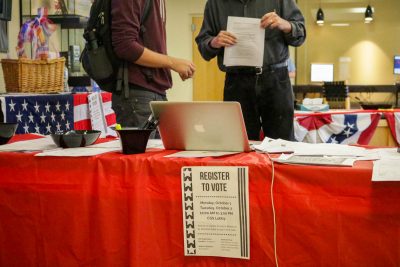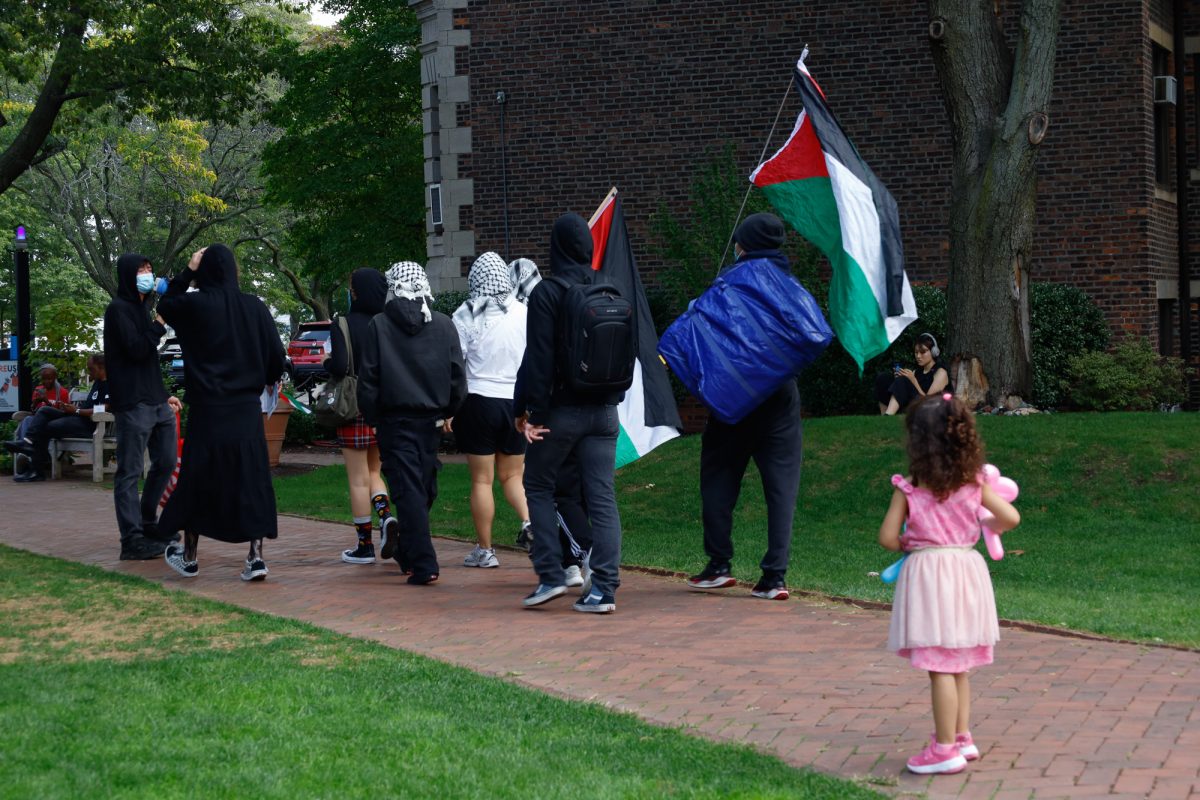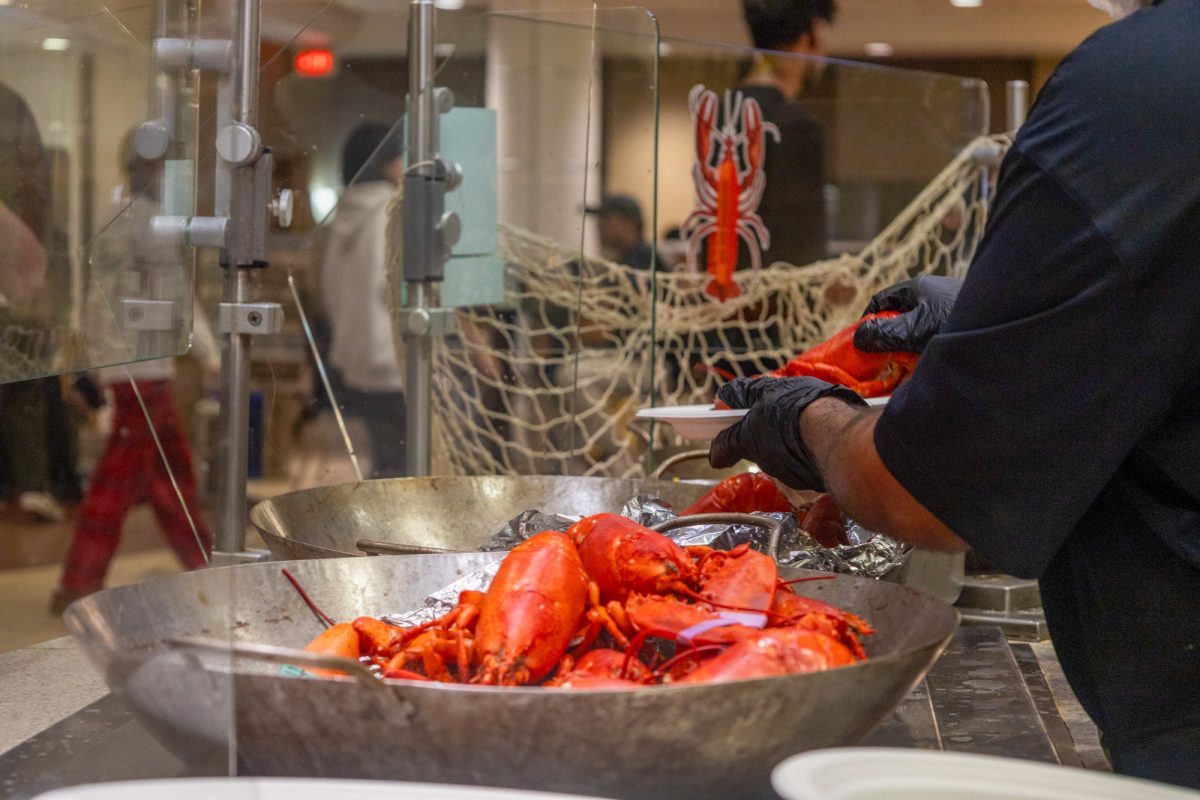
As part of an initiative to encourage students to vote in the upcoming midterms, Boston University’s College of General Studies Social Sciences division held a voter registration drive in the CGS lobby Monday and Tuesday.
Volunteers helped students fill out voter registration applications both online and on paper and helped out-of-state students register for absentee ballots.
CGS has hosted a voter registration every two years, before every national election, for the past several years, said CGS master lecturer Susan Lee, who helped organize the drive. However, there has been a marked increase in interest in voting among BU students this year, Lee said, and students have been more politically aware and strategic about their voting.
Lee said that the current political climate could be contributing to this new interest in voting among young people.
“I think the polarized political atmosphere that we have has a lot of downsides to it, but one upside might be that younger people are much more interested these days because they see the implications of not voting,” Lee said. “We’re hoping to demonstrate to them that, feel whatever you want, believe whatever you want, but you’re not going to make any changes if you don’t vote.”
CGS sophomore Raad Qazi said he thought the registration drive would go a long way toward encouraging students to vote
“It’s definitely helping cure voter apathy,” Qazi said. “I probably would not have registered if this was not here. I would have completely forgotten about it.”
CGS freshman Maddie MacMaster said the drive had a major impact on her likelihood to vote in the upcoming midterm elections.
“I have already registered to vote previously before I came here, but I just got an absentee ballot so that I wouldn’t have to go home,” MacMaster said. “Honestly, it’s so bad, but I think if this wasn’t here, I wouldn’t have gotten an absentee ballot and wouldn’t have been able to vote.”
The process of registering for an absentee ballot was easy, she said.
“It was pretty much, you just sign each line and dot your i’s and cross your t’s,” MacMaster said.
Youth registration has historically been low, according to the Tufts University Center for Information and Research on Civic Learning and Engagement (CIRCLE) — approximately 50 percent of eligible adults between the ages of 18–29 voted in the 2016 general election, even though they make up 21 percent of the voting-eligible population in the United States.
The inclusion of absentee ballots is important for students who live in states besides Massachusetts, CGS lecturer Charles Henebry said.
“Just being registered doesn’t do you any good if you live in Florida or somewhere,” he said.
The voting registration drive is not the only initiative that has been held at CGS to encourage civic engagement in students, CGS Dean Natalie McKnight said.
Lee organized a handout of free Constitution copies, purchased from the American Civil Liberties Union, about two years ago, McKnight said.
McKnight said that an organization called Open Space meets at CGS to discuss current events happening in the world and create a space for people to talk and vent about the issues surrounding them. McKnight said Open Space has been a “good forum” for some “powerful, emotional meetings” since the 2016 presidential election.
Meeting a diverse group of people including “conservatives from the central United States and … immigrants who came here as young children from a variety of countries” has influenced Ashley Cruz’s voting, the CGS sophomore said.
“I’ve learned a lot from many different people, and I’ve learned different perspectives,” Cruz said. “Even though I believe I hold the same basic ideals, I’ve learned more about what other people want.”
CGS freshman Oliver Pour, who volunteered at the registration drive, said he thinks other colleges within BU should hold registration drives as well.
McKnight said she considers voting an ethical responsibility as a citizen, a belief she addresses in her classes. By hosting events such as the registration drive, she said she hopes to encourage students to be civically engaged and aware.
“We’re all really interested in getting students engaged in a democratic process, really underscoring how important it is to be voters,” McKnight said. “No matter what party they’re supporting or whether they’re independents, we just want to get them out there voting, engaged, taking up their civic responsibilities.”


















































































































